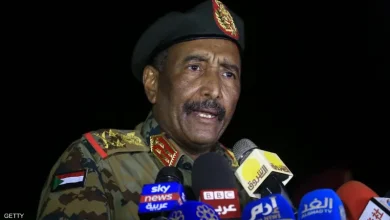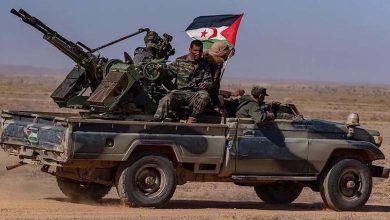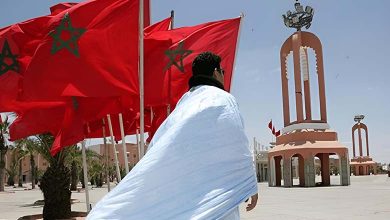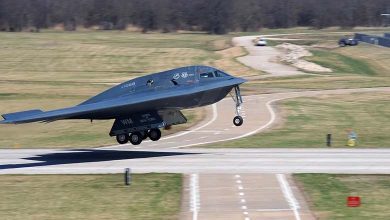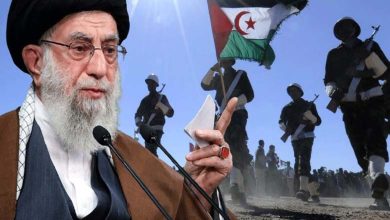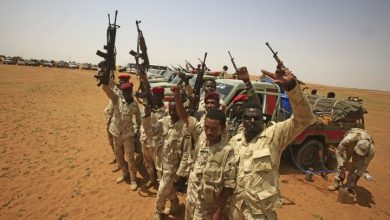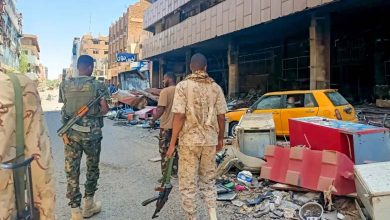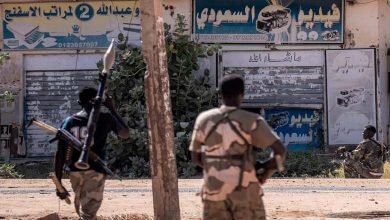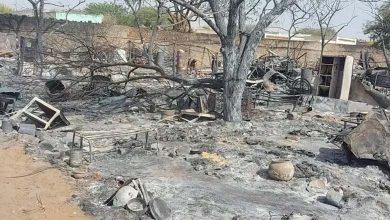Warnings and Concerns About Iranian Expansion in Sudan with the Help of al-Burhan
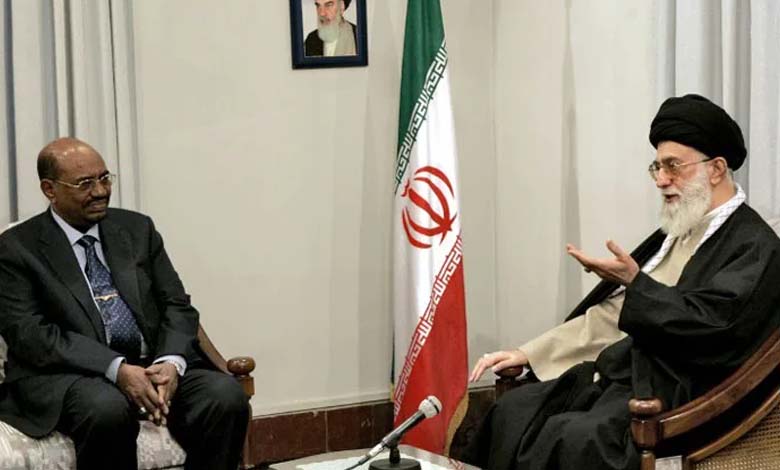
“In early January, videos from Sudan surfaced showing the downing of drones allegedly of Iranian origin by the Rapid Support Forces. Last month on the 24th, Bloomberg Agency published a report quoting Western officials stating that Iran had supplied the Sudanese army with drones, and that satellites had captured images of an Iranian “Mohajer 6” aircraft at the Wadi Seidna airbase, controlled by the army north of Khartoum.
According to this information, it reveals Iranian involvement in the ongoing war in Sudan since April 2023 between the army led by Sovereign Council President Abdel Fattah al-Burhan and the Rapid Support Forces led by Mohamed Hamdan Dagalo (Hemetti). This war has claimed the lives of over 12,000 people, displaced about 10 million, and exposed another 18 million to the risk of famine.
The Sudanese Ministry of Foreign Affairs announced on October 9th last year the resumption of Khartoum’s relations with Tehran after a 7-year hiatus. Additionally, Sudan’s Acting Foreign Minister Ali al-Sadiq met with Iranian First Vice President Mohammad Bagher on the 20th of last month in Kampala, Uganda, on the sidelines of the Non-Aligned Summit, and “discussed restoring bilateral relations between the two countries and expediting the reopening of their embassies.”
Under former President Omar al-Bashir, Sudan had strengthened its ties with the Islamic Republic, causing concern among neighboring countries. Iranian warships regularly visited Sudanese ports, and Iran sent missile weapons to Sudan, some of which were destined for Gaza. Al-Bashir established relations with Iran just five months after coming to power in 1989. Later, Khartoum hosted three successive Iranian presidents: Akbar Hachemi Rafsandjani, Mohammad Khatami, and Mahmoud Ahmadinejad.
However, pressures within the “rescue” regime controlled by Islamists against this relationship with Iran increased, and in September 2014, all Iranian cultural institutions were closed, and Iranian diplomats left the country. Regional and international pressures, especially Israel’s bombing of a weapons store in Omdurman in May 2015, led to a negative reassessment of the relationship with Iran. The attack on Saudi diplomatic missions in Iran prompted Khartoum to sever ties with Tehran in 2016 in solidarity with Riyadh.
The presence of Iranian drones at the heart of the conflict in Sudan reveals al-Burhan‘s and his government’s openness to advanced relations with Iran, taking advantage of the easing of relations between Tehran and Arab countries such as Saudi Arabia, the United Arab Emirates, and Egypt. In other words, the Arab environment that opposed Khartoum’s relations with Tehran under al-Bashir theoretically might not oppose any kind of relationship between Sudan and Iran.
Although reports and accusations from the Rapid Support Forces and the Forces for Freedom and Change speak of a return of political Islam to exert extensive influence within the structures of the regime led by al-Burhan, al-Burhan‘s Iranian choice may draw from Islamic doctrinal motives uniting Sudanese Islamists with the Islamic Republic regime in Tehran, especially since the Muslim Brotherhood in the region, except for the Brotherhood in Syria, had forged close ties with Tehran that sometimes waned without turning into an absolute rupture.
However, the primary motive for al-Burhan to reopen relations with Iran is the army’s need for weapons that can make a qualitative difference in the battles against the Rapid Support Forces. The Sudanese army relies on Iranian drones that have proven effective in various battlefields, especially in Ukraine on behalf of the Russian army. In addition to the military incentive, al-Burhan seeks to open a political partnership with Iran, supported by China, Russia, and other countries.
It is not surprising that Iran intervenes by providing drones and other weapons in the war in Sudan. This is part of Iranian foreign policy that always benefits from internal conflicts and civil divisions to find its place in the countries of the region, from Iraq to Yemen through Syria and Lebanon. Moreover, Tehran re-establishes relations it knew how to exploit and manage in the past during al-Bashir‘s time, and it is easy to reactivate them, this time at Sudan’s request.
Sudan represents for Iran an opportunity to compete strategically in a strategically important country in terms of location, resources, role, and function on the African continent and in the world.
Although regional and international countries have been working for decades to strengthen their interests in Sudan, and all political regimes that have ruled the country since independence have their own interests, the country also represents an additional opportunity for Iran to make another appearance in Africa on the one hand, and in the Red Sea on the other, amid controversies over its influence on the sea and its passages through the Houthi movement in Yemen.
However, Iran’s ambitions in Sudan and the Red Sea are also linked to the fate of the current conflict, both militarily and in terms of settlement possibilities. While peace options recede due to the complexity of holding a meeting between al-Burhan and Hemeti and the Sudanese Foreign Ministry’s announcement last month to suspend Sudan’s membership in the IGAD, the peace facilitator, and its statement that “Khartoum is not bound by and does not concern itself with everything the organization publishes on the Sudanese issue”, this opens wide the door to Iranian arms intervention in the combatants’ battles.
Iranian intervention could encourage conflict parties, regional and international forces to develop tools to reach a political settlement. However, this intervention further complicates the Sudanese crisis in that it constitutes a provocation for neighboring countries or those interested in the Sudanese issue and attracts more foreign military interventions into the Sudanese conflict. However, Iranian intervention in Sudan, supporting the army, contradicts Western positions, especially American and British, which have always expressed support for the Forces for Freedom and Change to establish democracy in Sudan. Notably, these “forces” seem closer to Hemeti, who calls for the establishment of a democratic civil state in Sudan.
It is worth noting that Tehran and Khartoum have not directly and explicitly revealed the nature and level of their cooperation, and Iran has not leaked an official position on the Sudanese conflict. It is clear that Tehran, which concluded an agreement with Riyadh in March 2023 and seeks to develop its relations with Cairo, is approaching the Sudanese issue with caution, wisdom, and sensitivity to avoid provoking Red Sea countries and worrying Saudi Arabia and Egypt, which border this sea and have taken a neutral position in the current conflict with the Houthis in Yemen. The mystery of Iranian presence in Sudan will raise questions about what it could mean for Israel from a country that has joined the Abraham Accords and allows Iran to make an appearance after Yemen on the Red Sea.”



